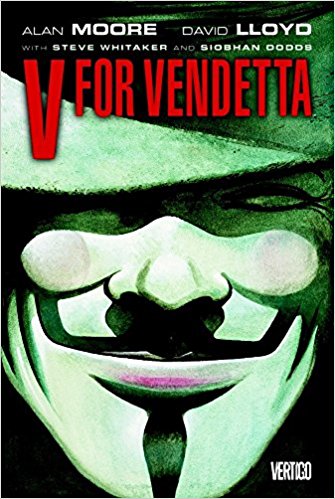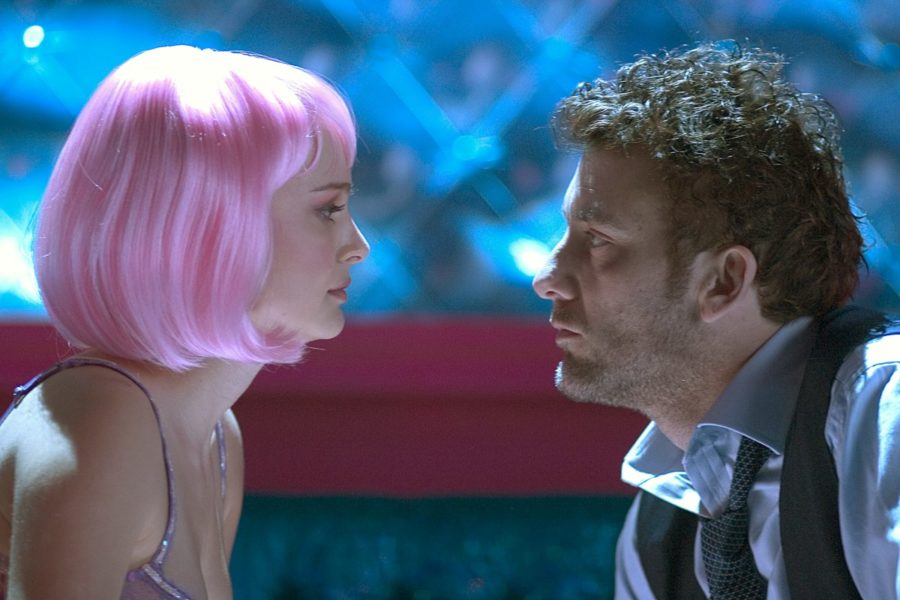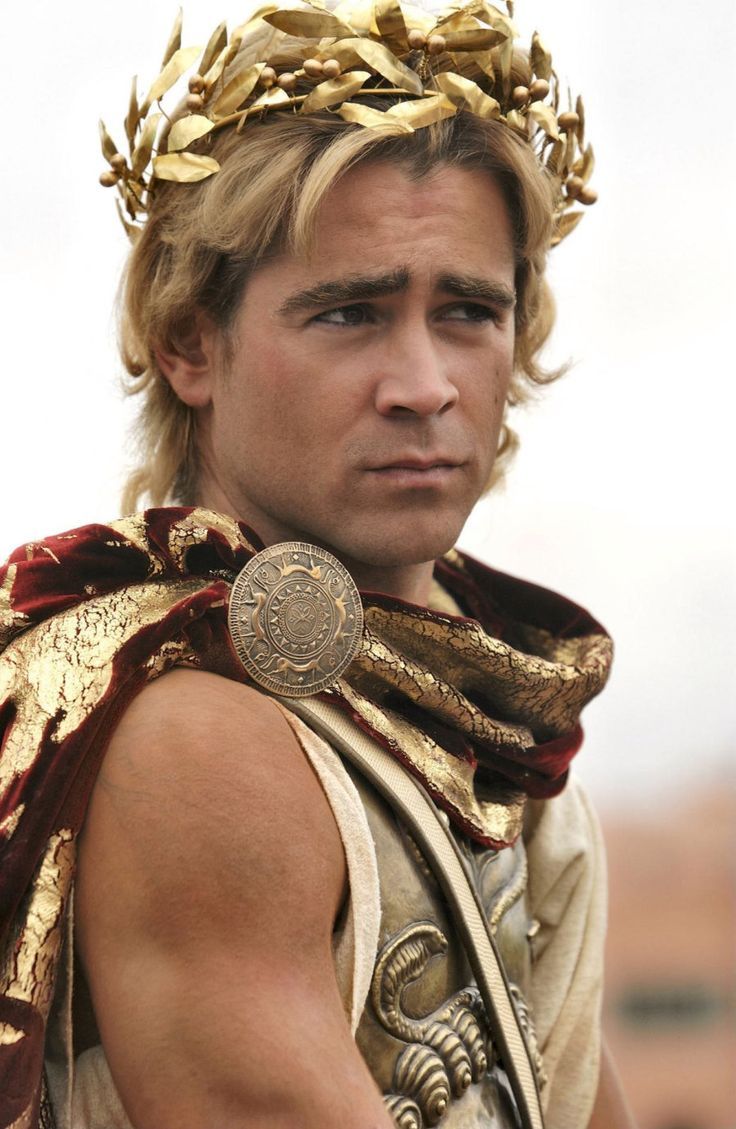INTERVIEW Alan Moore on V For Vendetta
Transcript of telephone interview with Alan Moore by Ian Winterton on Monday 6th June, 2005
Hello, Alan, it’s Ian.
Hi there. How are you mate?
I’m good. Are you OK to talk?
Yes. How can I help you?
Well, with your take on the V For Vendetta movie.
You want me to outline the debacle for you?
Yeah. That would be good.
Well… you can edit this to whatever you need to edit it to but I’ll give you all the details and you can whittle them down, yeah?
That sounds good.
Well, basically, my relationship with DC comics has been a troubled one almost from its inception. This was mainly brought about by the fact that after signing contracts with DC for both Watchmen and V For Vendetta on the understanding that these properties would revert to me and the artists concerned once a certain time had elapsed from the books going out of print and then realising that in fact the books were never going to go out of print and that they were never going to revert to us. Looking back it does seem as if we’d gone into this a little naïve, a little blinkered but you have to remember that back at the time when I’d signed these contracts it was unheard of and no-one had got any anticipation of it ever happening. So this was why, amongst other reasons, why I quit working for DC comics the first time, way back in 1987. there were all sorts of other reasons, like the ratings controversy, where they were trying to put movie-style ratings on comic books which I thought was inane. After all, there aren’t ratings on books. So, I’d parted company with them back in the late eighties. At some point during the middle nineties I had decided to basically put together a raft of comic book titles and this would be with Jim Lee’s Wildstorm productions, which was an independent comic book publishers where Jim Lee was someone I respected and always got on well with. I’d also got a separate deal with Jim Lee’s creator-owned rights I was working on the league of extraordinary gentlemen with Kevin O’Neill. After I’d signed contracts for the whole of the other four books in the ABC line, Wildstorm was bought out by DC. Now I know that when I’d been previously working at Awesome comics and they’d gone bankrupt, I know that DC had offered to save the company by buying it but only on the understanding that I would be part of the deal. I hadn’t got any contracts signed with Awesome so I declined. I don’t know whether my presence was a contributing factor to DC buying Wildstorm but in this instance I had already signed contracts and made personal agreements with the artists that I would be doing these often quite lengthy comic strips with them which would be putting bread and butter on the table for them.
It must have been a sickener having to go back with DC.
Well, yeah. I was told by a somewhat nervous Jim Reid that something had been brought out by Wildstorm, so I was in something of a dilemma of going back on my word, which is something I’m not actually accustomed to doing, and working for DC, however remotely, when I’d said I wouldn’t do this. On the one hand I could turn round to the artists I’d promised work to and tell them it wouldn’t be happening. So, I don’t know, call it moral cowardice but the former seemed easier to take, if I could just swallow my bile, that option seemed easier than the second option. I buckled down to work at ABC and I’m incredibly pleased with all of the books that we produced. I think we did some fantastic work. There were a couple of times during that relationship when DC would interfere. There was the ridiculous incident when a whole print run of League of Extraordinary Gentlemen was pulped, because of an advert in the back which I hadn’t even noticed, frankly, for a 19th century vaginal douche provided by the Marvel Company of New York. This was pulped because DC were worried that this would sour their rosy and otherwise agreeable relationship with Marvel. They actually thought that the whole affair was fairly funny and ridiculous, as did I. I think Marvel actually published the same Victorian ad in one of their publications.
They’re worth a fortune those pulped issues.
Yeah, I wish I’d kept more of them. And there was an incident with a Cobweb strip in Tomorrow’s Stories where we told the story of the rocket scientist and magician, Grant Whiteside Parsons. It contained references to L Ron Hubbard and the Scientologists and DC eventually said that they didn’t feel they could publish it. After I’d thrown a tantrum and inadvertently put a stop on the Watchmen 15th anniversary edition or whatever they were planning, then DC found out they’d already published the same story in one of their other comic book collections. So, again, it was something that was completely unnecessary and pointless. We got over these things, just about, and I was able to carry on and bring the entire line to a conclusion, at which point, over a year ago, I told Scott Dunbear that DC understood that once I’d finished all of the ABC books I would no longer have any contractual ties to ABC, Wildstorm or DC comics and that the sole remaining title was The League Of Extraordinary Gentlemen which me and Kevin owned. As I explained it to Scott, we were very happy to continue to publish League Of Extraordinary Gentlemen through ABC and Wildstorm because, you know, we’d been working with Scott and the rest of them there and we were more than happy. So, if nothing else happened… as I put it to Scott, you know, if I don’t have anything else happen that reminds me that DC comics exists then I’m quite happy for it to be published by ABC/Wildstorm in any future volumes that we might do. So Scott spoke to DC and then assured me that they would be on their best behaviour and if there were any further pulpings or whatever that we would just be taking the League Of Extraordinary Gentlemen to another publisher. That would be a final severance between me and DC comics. Now, running parallel with all this is my growing disenchantment with the movie industry, with Hollywood. Right from the start when there was talk of films being made of… of Terry Gilliam making Watchmen, or various talks about V For Vendetta – I’m talking back in the Eighties now, I was always fairly dismissive of the idea and actually thought the things had been best realised as comics and that just because something worked as a comicbook, that didn’t mean you should make it into a film or a television series or a whole franchise. It was probably at its best in its original form. So I didn’t really have very much to do with the early genesis of any of these films. My feeling was by then that, since technically DC owned these properties, and since I was disenchanted with DC then, you know, I had no interest in the films. If they got made then DC would give me the money but that I wouldn’t be expected to do anything else with them. Then there was the From Hell film which was owned by myself and Eddie Campbell, and my attitude to that was OK, make the film, give me and Eddie the money for it but I maintained the position that the film and my work were two very separate entities and that I wasn’t interested in the film and that I probably wouldn’t be going to see it, that there was no offence intended to any of the people involved in the film but films weren’t really my medium of choice and that I’d prefer to keep my work completely separate. I didn’t see the From Hell film when it came out. I think I got ten minutes into it and realised that it had been a bad idea to watch it after all. I thought the trailer was enough but I thought I should at least try to be fair. I just thought it was a travesty, so I turned it off. I’m the last person who could be fair about a film like that. There didn’t seem to be any point either tormenting myself or being unfairly uncritical about a film that, obviously, isn’t going to be like the book. So I continued this attitude with League Of Extraordinary Gentlemen, that I probably wouldn’t be going to see the film, that I wasn’t interested in it, we’d accept the money for it but that would be the extent of my involvement. The book would be a separate entity. However, while this was OK as far as it went, there was an incident after the film had been released.
The court case.
Some plaintive in America, some screenwriter, had apparently sent some screenplay around with an entirely different bunch of Victorian characters to the ones portrayed in my book but who did have some similarities to those in the film which had one or two Hollywood additions. Tom Sawyer, characters like that. Apparently, the only way this person could have any chance of the case getting into court was to actually claim this unlikely string of circumstances where the head of 20th Century Fox had stolen this guy’s ideas and phoned me up, because we’re such good friends, and suggested that I write a comic book purely to disguise his theft of this guy’s ideas. Now, as soon as I heard that, I was appalled, because I don’t get my ideas from Hollywood screenwriters. In fact, generally, it’s the other way round. I’ve noticed a few films that have had, to my eyes, perhaps, Alan Moore touches you might call them. No big deal, that’s what you kind of expect. In my own medium I am fairly well respected and I really could not stand still for the inference that I was stealing ideas from a second-string writer in another medium, especially a medium that I don’t have a great deal of respect for. At this point I decided that I would have to draw a hard line so I said I cannot tolerate the possibility of this ever happening again. I realised that Hollywood is filled with people who, with every film that comes out there’s probably a few court cases from people who are trying to get some of the action. I thought the only thing to do was to cut all connections between myself and Hollywood. I didn’t want any films made of my work, this is talking about work that I’ve purely contributed to myself. There was talk about somebody wanting to make a Voice Of The Fire film which would just involve me because that was a novel that didn’t have an artist. So that is completely out. I didn’t want film adaptations of work that I own entirely. Pieces of my own work that are owned by other people, such as Watchmen or V For Vendetta, where I haven’t really got a say over whether they’re made into a film or not, then what I want is for my name not to be attached to the film and for any money I’m due to be distributed amongst the artists or other writers or creators on the project. That seemed to me to be a stringent enough measure to actually make it clear that I had no connection with the film industry, nor did I want any connection with the film industry. I thought that, you know, turning down thousands and thousands of dollars might have given an indication of how strongly my feelings were on this matter.
It’s pretty admirable.
Well, you know, it’s probably mad and self-destructive but it’s just what I felt needed to be done. I think if you’re going to react to something, you might as well over-react. So, anyway, pretty soon after I’d made this perhaps rash declaration, I got a phone call from Karen Berger telling me that, good news, there was lots of money going to coming my way before Christmas because of this Constantine film that was going to be made. I said, OK, divide my money up between people who worked on the character, most notably Rick Veitch who was the first person to draw the character but who wouldn’t have got anything from it. Make sure that my name doesn’t go on the film. I told Karen that this would go for any future films as well. I didn’t want any money from them, that it should be distributed amongst the other people and that I didn’t want my name on the films. I then got a cheque through the mail, just for $8,000 which was an option cheque for the V For Vendetta film which I thought was dead in the water. So I was a bit surprised. I got back on the phone to Karen and said can you send the money to Dave Lloyd or write it out to Dave Lloyd and make sure I have my name taken off the film. She sent me some paperwork so I could officially assign this $8,000 to Dave Lloyd. And then, out of the blue, I got a phone call from one of the Wachowski brothers. He called in the middle of work. I tried to be as polite as possible – I don’t like being rude to people and I hadn’t got anything personal against anyone working on the film – and told him that I didn’t want anything to do with the V For Vendetta film and that I wasn’t taking any money for it and didn’t want a credit on it and didn’t have any interest in it. He sounded a bit doleful, asked if we could get together and talk. I explained to him that I was very busy and I wouldn’t be able to get together with him any time this year. I didn’t mean it as a snub, it was simply the truth. I’d got work to do and then I’d got a long deserved and long delayed holiday to take care of, and the rest of my life, you know. There was simply no advantage to us talking. It would be a waste of both of our times. I finally got him off the phone and was able to return to whatever work I was doing and then, sometime later, I was told that, yes, the film was going ahead and I said, OK, and they asked if I was really serious about turning down the completion money. Option payments are relatively small amounts that you get whether the film is eventually made or not. If the film finally goes into production then you get your completion money. This is the big amount. I had phone calls from Karen Berger asking if I was really sure I wanted to give this money to Dave Lloyd and I told her I was absolutely sure. She said OK and I stressed that I wanted my name taken off the film and that I was absolutely sure I wanted to give the money to Dave Lloyd. She sent me the necessary paperwork and it was round about then that a friend of mine, who’d received some promotional material about the film, phoned me up and asked if I was aware that, in the press release recap of the press conference, Joel Silver said I was very excited about the film and that I’ve talked to the Wachowski brothers and that we’d be meeting together so I could have input into this film I’m so excited about. Obviously I was less than pleased, because it seemed as though the side of the deal whereby I give all my money away, that had gone through smoothly. The sides of the deal where I actually got what I wanted, which was utter none involvement with these films, that somehow didn’t seem to have worked out. So I contacted Scott Dundear and basically explained to him that I was about 18 pages away from finishing my contracted work and I reminded him what I’d said about the possible future of League Of Extraordinary Gentlemen and that being my only connection to DC and I said, “I understand that this is not directly DC’s fault, that this movie producer has, well, knowingly lied about what the position was. So it’s not your fault, but it is your responsibility. You were able to make sure my money was reassigned, you know, and so it’s your responsibility if you weren’t able to make sure that the other part of the deal wasn’t taken care of.” What I said was, give it a couple of weeks, what I wanted was a written apology in a forum that was made in as large a forum as that in which it was made. This didn’t need to be anything embarrassing. I didn’t want anybody to actually have to say, “I am a fat liar” even if that was indeed the case. I would have been quite happy with something like, “Owing to misunderstandings, we have stated that Alan Moore’s feelings about the V For Vendetta film are blah, blah, blah, when they are in fact, blah, blah, blah. We apologise for any inconvenience caused.” That didn’t seem to me to be punitive. I would have accepted that. I would’ve allowed DC to carry on, through Wildstorm, ABC, publishing the League Of Extraordinary Gentlemen. But I think somehow I knew from the moment I asked for this that it wasn’t going to happen. When the two weeks were up, I think DC offered me all that they could offer me, in fairness, which was a little piece on the DC website, which is significantly different to a Warner Bros press release. I sort of had to tell them that, in that case, this would be a severance between me and DC. I would still be publishing bits of my work that I’ve finished working on, like the League Of Extraordinary Gentlemen dossier, two specialist editions of Tomorrow’s Stories that are yet to come out, the last edition of Tom Strong. Beyond that point, a projected third volume of League Of Extraordinary Gentlemen, I think that me and Kevin have both agreed that we’d like to see it published as a joint venture between Knockabout Comics in the UK and Topshelf Comics in America – both small publishers that we get along with and trust. I feel pretty good about the whole thing. I could have done without all of this drama when I was on me way out the door and looking forward to a quiet holiday but, you know, on the other hand there’s a nice finality about it that means I am shot of a company that I didn’t want to work for and haven’t really wanted to work for since about 1984. There’s a whole field of possibilities in front of me that I’m eagerly exploring. Life feels pretty good at the moment. That’s basically the story.
Is that the reason you changed your phone number?
Oh, no, no. The reason I changed my phone number was because of something that happened six months ago. I had some nutty stalker. Nothing of any great consequence and it was all sorted out.
It wasn’t the Wachowski’s then?
No, but I did mention to Scott Dundear that if that happened again then I would be changing my phone number and that this time even he might not have it. I think this time I’m pretty safe from Hollywood stalkers.
It must be very strange, especially since you announced your retirement and suddenly all these movies are getting brought out. How does it feel… the film was shooting in London and the next day all the tabloids were full of people in V For Vendetta masks and tanks outside the Houses of Parliament. Very surreal.
The thing is, seeing as I don’t read the tabloids, and since I don’t watch films, then the only things that I see are… I notice on the front of Mad Magazine, I noticed that they were taking a sideways look at the Constantine movie. That was pretty devastating. I suppose I just take it one day at a time. It is pretty savage having Mad Magazine satirising one of your creations, other than that, I don’t really see much of it, or pay any attention to it, especially when the tabloids come out with some ridiculous rumours. A few months ago, I had somebody asking me about a story that had been in one of the tabloids about Shane Ritchie who was going to be appearing in a BBC television production of From Hell, which is the first and last that I’ve heard of it. I’ve made my point to DC and I’ve also explained to them that should, despite all of my protests and my withdrawing of my labours from them in the future – and will be making sure there is a clause in any contract with any company in future that, should the company be bought out by a large company then my contract is null and void – even though there is no chance of me ever working for them again, don’t think that this situation can’t get worse. I’ve said that basically, if my name is attached to this film then I shall be taking my name off all of the books that I do for DC. I shall be refusing money for Watchmen, V For Vendetta, any of the other books that they do. There’s quite a few of them by now. As the only way left to make my point. Then they can bring out David Lloyd’s V For Vendetta, Dave Gibbons’ Watchmen, Steve Bisette’s Swamp Thing, and I shall be shot of the American comic industry in every respect. Forever.
In their way of thinking, they see you as a strong brand which is why-
Yeah, well, that’s what I think too so that’s why I’ll be taking my name off all the books. It would be something that would be a very hurtful thing for me to do, emotionally, financially, in all sorts of ways. As I explained to Scott Dundear, you know that I’ll do this in a second, you know that I don’t bluff about these things. I don’t like to make threats, I just like to make statements of what reality is going to be like.
Why do you think it is that movies don’t seem to be able to come remotely close to books that are so good?
Well, I think that… I think, originally, I did intend to put my disenchantment with movies down to a matter of taste but, now that they’ve brought themselves to my attention, I think that my disenchantment goes deeper. It strikes me that movies as a medium are kind of flawed from their inception in that cinema is a technologically intensive, and thus cash intensive, medium. Unlike say comic strips or writing or drawing, you can’t just pick up a piece of paper and a biro. You are going to need a certain level of expensive equipment in order to make even the most rudimentary film. This means that, in practical terms, in most circumstances, you’re going to have, not artists in control of the work of art, but accountants. There are going to be overriding financial concerns that will steamroller all over any creative concerns. This is not to say that wonderful films haven’t been made and can’t be made. Of course they have. I find that most of my favourite films look like they were made for about five bob. Jean Cocteau has a magical scene that has a character start to walk into a mirror. He hadn’t got CGI or half a million dollars to spend on the effect, so he filled a tray with mercury and turned the camera on its side. That has got an elegance and an artistry that I am in awe of and that I would never want to detract from. But, it seems to me that when we’re talking about the great majority of the output of modern cinema, we’re not talking about Jean Cocteau. We’re mainly talking about fairly idiotic films that seem to have been largely made by and for people with reading difficulties, people who are, perhaps, emotionally, intellectually, a bit retarded. So I suppose that we’re talking about 18 year old boys, which I should imagine is the main target audience for movies. We were all emotionally and intellectually retarded at 18. I certainly was, you know. I’ve got no objection to entertainment for people in that bracket, it’s just a shame that it should have taken over an entire artform. Consequentially, I don’t really watch movies, I’m not really interested in them. There’ll occasionally be one that has something genuinely wonderful about it but the majority of them, it feels like a waste of two hours of my life that I could have been doing something else with. This is probably because I’m an increasingly kranky and reclusive weirdo. Perhaps it should be taken with a pinch of salt. It’s perhaps purely subjective.
I was reading in an interview Jonathan Ross did with you and you said you really liked the Sopranos.
Yeah, but I went off that. For a time I really did like it because I thought it was like a genuine Shakespearian drama. He had said that it would run for five series and then that would be the end. So I thought, great, it’s not a soap opera. This is something that’s not an indefinite, ever-lasting middle, it’s something that has a beginning, a middle and an end. It is a story. When I was watching it as if it was going to end, as if it was a finite story, I thought it had the capacity to be something that was very close to Shakespearian tragedy. It’s got these monumental tragic figures in these classic situations. It could be something really wonderful and then, about three series in, once I realised that it was going to go on forever because it was making so much money, I lost all respect for it because it just became a soap opera. I’m not interested in soap operas even if they are mob soap operas where you can say ‘cunt’. You know, it’s sort of, I didn’t bother watching the last two series. I just stopped dead. I’m quite disenchanted with, I don’t really watch… screens is not my favourite way of enjoying something. There’s something a bit bullying about screen entertainment. It doesn’t leave room for the audience’s own imagination. It’s there with books, with radio, with painting, with comicbooks, you know. All of these things require a little bit of work on the part of the audience which I think is a really, really important part of the creative experience of enjoying art. You have to do a little bit of work, otherwise you won’t enjoy it. This spoon-fed culture, I think we’re probably hoarding up trouble for the future. I don’t know where the space is for imagination anymore. I don’t know which parts of the imagination haven’t yet been colonised by the various franchises of children’s television and all of the children’s films and the merchandise connected to them. I don’t know, I might be being unduly pessimistic but I do sometimes worry because no one’s imagination is actually encouraged and I don’t think the popularity of, say, the Harry Potter books, is an encouragement to the imagination. Irrespective of the value of the actual books, they’re part of a massive franchise, a massive phenomenon, where probably there’ll be more people go to see the films than will ever read the books and that’s saying something. All these books, all these comics that are made into films, I don’t think they do any favours to the comics medium. A lot of people in the medium seem to regard the fact that ‘Oh, they’re making a Spider-Man movie, that means all the kids will be coming into the comic shops’. Not necessarily and even if they do, is this the sort of audience comicbooks want to attract? Even if they make a good movie… I heard that the American Splendor movie was very, very good but my point would be that I don’t think… I haven’t seen it because I’m mates with Joyce and Harvey so when they were over here last summer I got American Splendor live. They came round my gaff and we chilled with them all day. Fantastic. There was no CGI effects, no bluescreen technology. The thing is that American Splendor is a wonderful comicbook, I’m sure it’s a good film but is it better than the wonderful comicbook? The Ghostworld film – any improvement on Dan Clowes wonderful comicbook? So, I’m fairly jaundiced in my opinion. I haven’t seen any of these films. I don’t go and see films that are made of my own work so I’m damned if I’m going to see anyone else’s. That’s my basic opinion anyway, Ian.
We had Frank Miller in town the other day. He’s taken almost exactly the opposite direction to you with Sin City. He’s a bona fide movie director now.
[With great sarcasm] Ooh, yes, fantastic. Good luck to him. I haven’t really had much to do with Frank for the past decade or something.
He said the reason he did it was because he’d seen how Hollywood had ruined other people’s work, he wanted complete control over the film. That was his take on it.
That’s fair enough. I didn’t want complete control over the film, I just didn’t want there to be a film. It’s unambiguous and straightforward I would have thought. I’ve heard that there’s this Sin City movie but I won’t be going to see that, either. Between you and me, I didn’t actually like the book very much. It seemed to be a tribute to Micky Spillane who was a brutal, stupid, misogynist twat, not to put to fine a point on it. The hard-boiled genre, you’ve got to something different with it if you’re going to interest me. Like I say, these are my own bigoted, prejudiced opinions.
Any news on Watchmen movie?
Well, I heard that’s not happening.
Again?
Again. But if it does happen, the same thing applies. I don’t want my name on it, I don’t want any money from it and if there’s any problem with that I’ll take my name off all the comicbooks.
I think Terry Gilliam was right when he said any movie of the book would just be less than the book.
Well, he didn’t think that way originally. We went to dinner in a little Indian restaurant at the bottom of Tottenham Court Road and he asked me how I’d make the Watchmen movie and I said, “To be perfectly honest Terry, if anyone had asked me to start with, I wouldn’t. It was written to be a comicbook, it was written to show things about the comicbook medium that couldn’t be duplicated in any other medium because I didn’t want comics to be seen as a poor cousin of cinema, as films that didn’t move.” People are always saying, “Yes, comics are very cinematic” which is kind of trite. Certainly it’s true that if somebody understands cinematic storytelling, they’re going to make a better comicbook artist or writer as somebody who doesn’t. But if that is the only way we see comics, in cinematic terms, then it’s just going to be films that don’t have a soundtrack and don’t move. I thought it was better to do things that comics can do that no other medium can, which was a lot of what Watchmen was about, and what a lot of my subsequent work was about.
Anything happening with Big Numbers?
No. No, there’s never going to be anything happening with Big Numbers. I mean, I tried to get that going twice and twice it failed disastrously. It’s just too painful to revisit again.
I hear you’ve got engaged?
Yes. This was part of my feeling of uplift and joy after finally throwing off the shackles of DC, I proposed to Mel and she was drunk so she said yes.
END
Excerpts from this interview appeared in the February edition of EMPIRE magazine. Visit www.empireonline.com



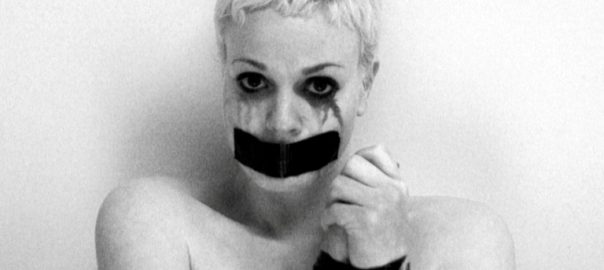
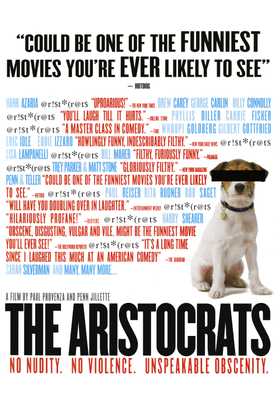
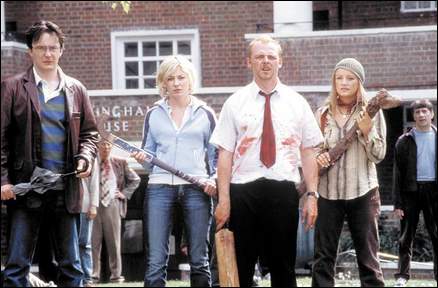

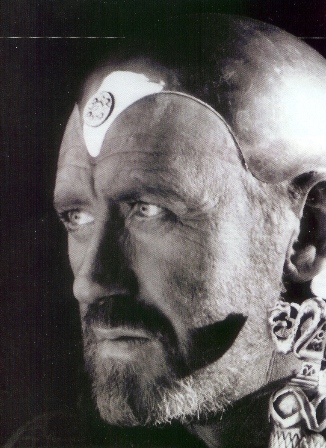
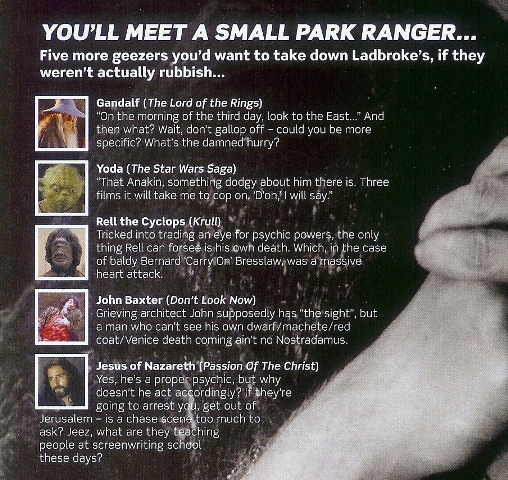 Aided by his second sight, Merlin has meddled in the affairs of men for centuries, though with what success is debatable. Having decided that Uther Pendragon is destined to reunite the kingdom, Merlin gifts him Excalibur. This does the trick but, at the celebratory banquet, Uther starts to covet Lord Cornwall’s missus and war is back on the menu before they’ve even had dessert. Merlin then employs the magical equivalent of Rohypnol, enabling the horny king to bed Mrs Cornwall. His one proviso: “What issues from your lust shall be mine.” Luckily for Merlin, he doesn’t just get a beaker of baby-batter, but Arthur.
Aided by his second sight, Merlin has meddled in the affairs of men for centuries, though with what success is debatable. Having decided that Uther Pendragon is destined to reunite the kingdom, Merlin gifts him Excalibur. This does the trick but, at the celebratory banquet, Uther starts to covet Lord Cornwall’s missus and war is back on the menu before they’ve even had dessert. Merlin then employs the magical equivalent of Rohypnol, enabling the horny king to bed Mrs Cornwall. His one proviso: “What issues from your lust shall be mine.” Luckily for Merlin, he doesn’t just get a beaker of baby-batter, but Arthur.